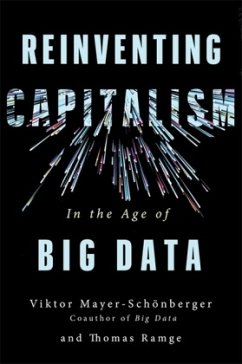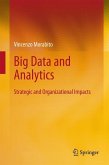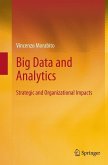Markets have long been acknowledged to be a superior mechanism for managing resources but until the advent of big data, they largely functioned better in theory than in practice. Now, as ideal markets are within reach because of vastly greater access to information, we are on the verge of a major disruption. As data becomes a more valuable asset than cash, the rules for surviving and thriving are changing.
Reinventing Capitalism is a provocative look at how data is reinventing markets and, in so doing, is ushering in an era where the firm is no longer predominant. With richer and more comprehensive information about human wants and needs, an economy powered by data offers the possibility of increased abundance, equality, and resilience. The data-driven markets that will thrive in this environment are far better than firms at organizing human endeavors, meaning that finance driven capitalism is being displaced by its more efficient, more sustainable, and more democratic disruptor: data capitalism.
Reinventing Capitalism is a provocative look at how data is reinventing markets and, in so doing, is ushering in an era where the firm is no longer predominant. With richer and more comprehensive information about human wants and needs, an economy powered by data offers the possibility of increased abundance, equality, and resilience. The data-driven markets that will thrive in this environment are far better than firms at organizing human endeavors, meaning that finance driven capitalism is being displaced by its more efficient, more sustainable, and more democratic disruptor: data capitalism.








